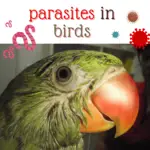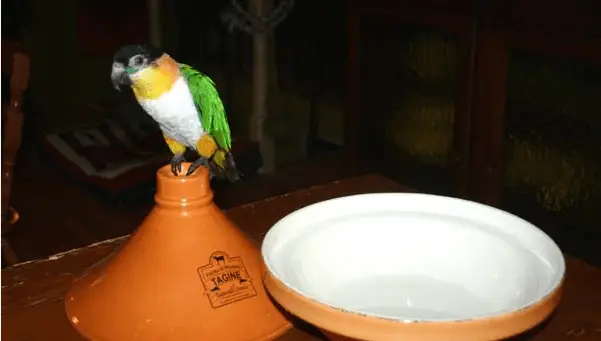
Parrot Curiosity: Parrots are innately impatient individuals; they want it all, right now, now… Pronto!
Nothing prepares them for the notion of waiting or patience – it’s a parrot’s life. This is one of the most difficult components of his socialization as a “domestic” animal to pass on to Coco, whether he is very young or older.
It is also, unfortunately, one of the most important of his pet learning since, in a context of captivity and dependence, the bird will spend a large part of its life waiting; whether for attention, for food, to get out of his cage, to play, etc.
At the beginning of its learning, the parrot spends most of its time learning that certain things are prohibited or that they require patience. It’s a very frustrating time for him and for you in turn. It is therefore very important that he feels understood and accepted so that he can learn these new concepts without feeling persecuted. It will take a lot of patience on your own to help your bird become patient.
Initially, most parrots will reject your rules and prohibitions and not obey you – THIS IS NORMAL! It takes several months, if not years before the parrot knows and adequately follows your “rules” for the perfect pet.
Correct vocalizations
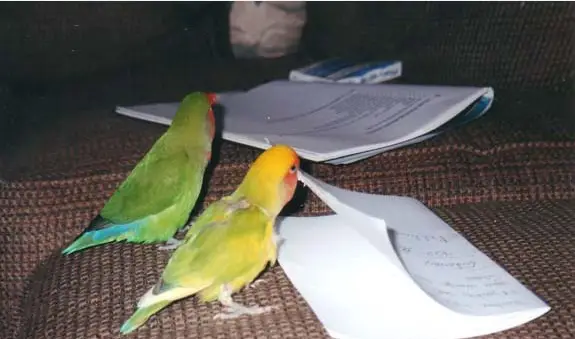
Parrot Curiosity
Some very simple learnings will be quickly recorded, if, of course, you know how to show consistency and coherence ( correct vocalizations (not howling) – inhibited bites (not to bite) ), but before the bird does.
around the household ( objects ), acceptable or unacceptable attitudes, correct statements (word-phrases) to use as well as your individual territorial rules ( e.g., not going on the stove ), a lot of time can be spent and you will have to repeat and repeat a lot… constantly!
Remember that your bird is striving vigorously to understand and assimilate with the ultimate goal of becoming self-reliant.
He will learn by trial and error and by imitating his role models ( you – be good role models ). When one of your rules is understood, it will be normal for him to rebel, try to “test” you, or have a few relapses. You will have to be consistent.
He may also feel overwhelmed by what you ask him, that he is afraid. He will therefore need predictability in his learning, and in your actions.
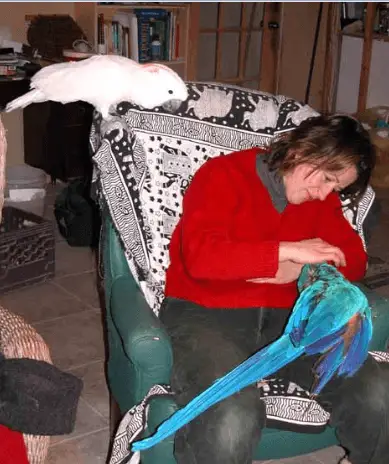
Delayed pleasure
Another concept difficult to integrate for the parrot living in captivity is that of delayed pleasure. He must learn to temporize, to wait before reaching his pleasure.
It is a completely abstract notion for him. In its natural environment, a parrot hardly ever waits… It desires and it immediately acts accordingly.
This is one of the major constraints in the socialization of a bird living in the company of humans: it must learn to anticipate pleasures that will not come until later, that is to say, it must develop its ability to visualize a desire in thought while being able to be patient and delay its pleasure, knowing that it will come true later ( predictability ).
Not easy that! Put yourself a little in his place; This concept is not at all obvious to him… He will only succeed with difficulty. He will need your guidance.
He will have to learn to wait without taking the event personally and with the minimum possible frustration (thoughtfulness on your part).
Although for him the very notion of waiting to satisfy a pleasure is already a huge source of frustration, it is important that the human educator is reliable and trustworthy so that the bird can anticipate an action that he knows will be necessary. ‘he will be able to realize ( later ) if he learns to be patient.
Forbidden pleasures and definition of limits
In addition to often having to wait to achieve pleasure, the bird finds other sources of frustration in forbidden pleasures. It is certain that for him, gnawing and nibbling are essential and quite normal needs.
On the other hand, it is important that he understands that everything that is within reach of his beak is not necessarily placed at his disposal to satisfy this need.
He must also learn that while screaming and pinching are natural means of communication in the world of birds, they are not adequate ways to be heard in that of humans.
It is up to the human educator to define limits for his bird because the latter does not innately know how to behave in a “domestic” context. This is (also ) that socialization.
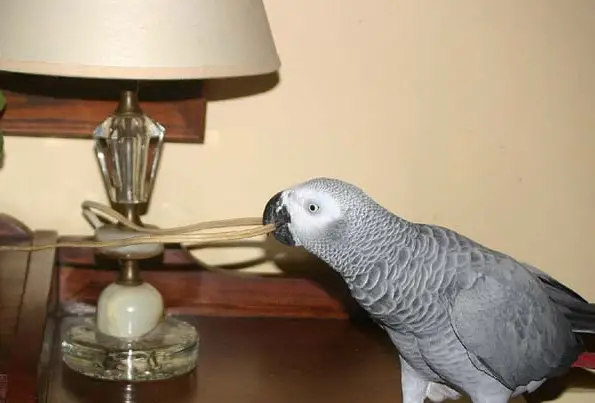
Parrot Curiosity
The parrot finds it reassuring to know what is expected of him. He can anticipate. When one of your rules is understood, he is not likely to be argued without understanding why. If he transgresses it, he does so knowingly.
He knows there will be a consequence and he can anticipate it. Everything is clear. So, it is important to show your expectations, to set reasonable rules, and to see that they are understood by the bird, and by your steadfastness, ensure that they are respected.
- Showing your expectations means teaching him what to do.
- Setting rules means teaching the bird what to avoid.
These are two basic principles of its socialization. If it knows your rules in advance, the bird is less likely to believe that it can satisfy all its pleasures or whims.
Parrots that have no rules become anxious and confused because they do not know how to behave, do not know if they can act in this or that way, and most importantly, do not recognize bad behavior.
They cannot anticipate consequences ( good or bad ) and risk being reprimanded often without ever knowing the reason. Knowing the rules and expectations gives the parrot a sense of security and control over its well-being.
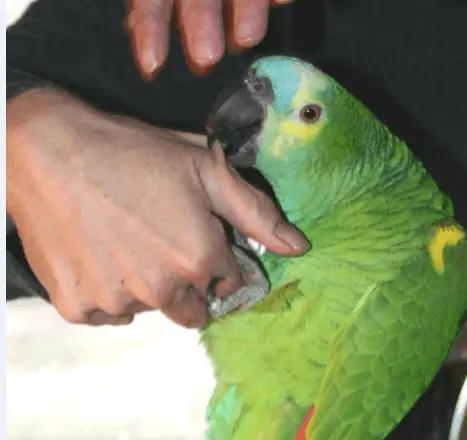
Parrot Curiosity
Your rules are not used to discipline the bird into a good, obedient, and docile little soldier. They serve in large part to secure it psychologically, without forgetting the physical security aspect of which we are the only ones to grasp the importance.
Rules are safety. Teaching your bird not to nibble on electrical wires, not to fly near the stove, and to come and present what it finds before starting it, are simple and easy ways to protect it from animal accidents that can arise if it has no limits.
Your house is not his ancestral forest and your guidance in your home will have to replace that which the natural parents should have provided in the said forest.
Even if you have set your limits and the bird has understood what you expect of it, it is in its nature to break those limits, one day or another, to see if they are still relevant.
Your parrot will mature and its exploratory behaviors will be refined – that is also normal. Do not believe at this time that his socialization is deficient or that your bird is impermeable to any form of social learning.
Parrots break the rules to push boundaries, to assert their autonomy or independence. This is why it is important to be consistent when learning from your parrot.
It is important to understand that parrots respect limits and expectations better when they feel accepted within the social group and that we take the trouble to notice and underline their good moves and their respect for constraints.
Realistic expectations
Now, you don’t have to expect the same from a young seven-month-old macaw and its five years senior. You must understand that just because a young parrot has already reached its adult size, it does not mean that it has matured.
Even if it remains essential to establish rules of conduct from an early age, it is important to know that before one and a half / two years, the parrot is too young to really apply them.
He’s impulsive and just doesn’t have the capacity to be able to resist temptation. The young parrot has difficulty controlling its behavior.
He is in the age of exploration and discovery and he knows innately that it is through his experiences that he will learn the most. Naturally,
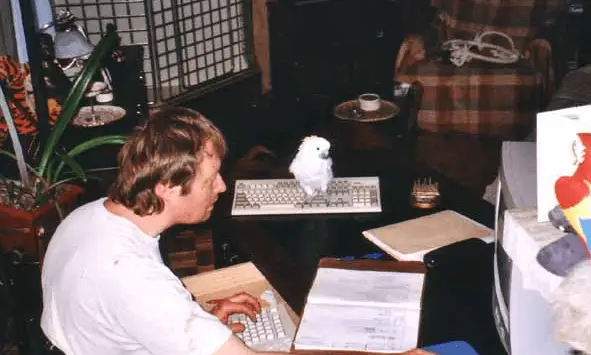
Parrot Curiosity
You will need a lot of patience. Your bird’s inappropriate behavior should not elicit negative reactions from you, as under such circumstances your negative reactions will lead to further unfortunate behavior.
On the other hand, it is easier to prevent a behavior from reoccurring the moment it appears than to try to remove it later.
The same goes for the older parrot, the so-called “second-hand” parrot. If the latter has not been able to benefit from stimulating socialization, you should not expect miracles.
It can sometimes be a long time before the bird understands or wishes to change a behavior that has always worked before ( biting, shouting ). He just doesn’t see the point because it’s always been that way.
Accompanying a parrot to modify unwanted learned behavior is to help the birds gain control of itself, the control it will need to become independent and enjoy a minimum of freedom in your home.
Self-control is not automatic and does not appear one day like that by chance, it is through the consistency and coherence of your interventions that the bird will learn to control its impulses and recognize the limits.
Curious parrot fascinated by mechanical bird
SOURCE: Rumble Viral

